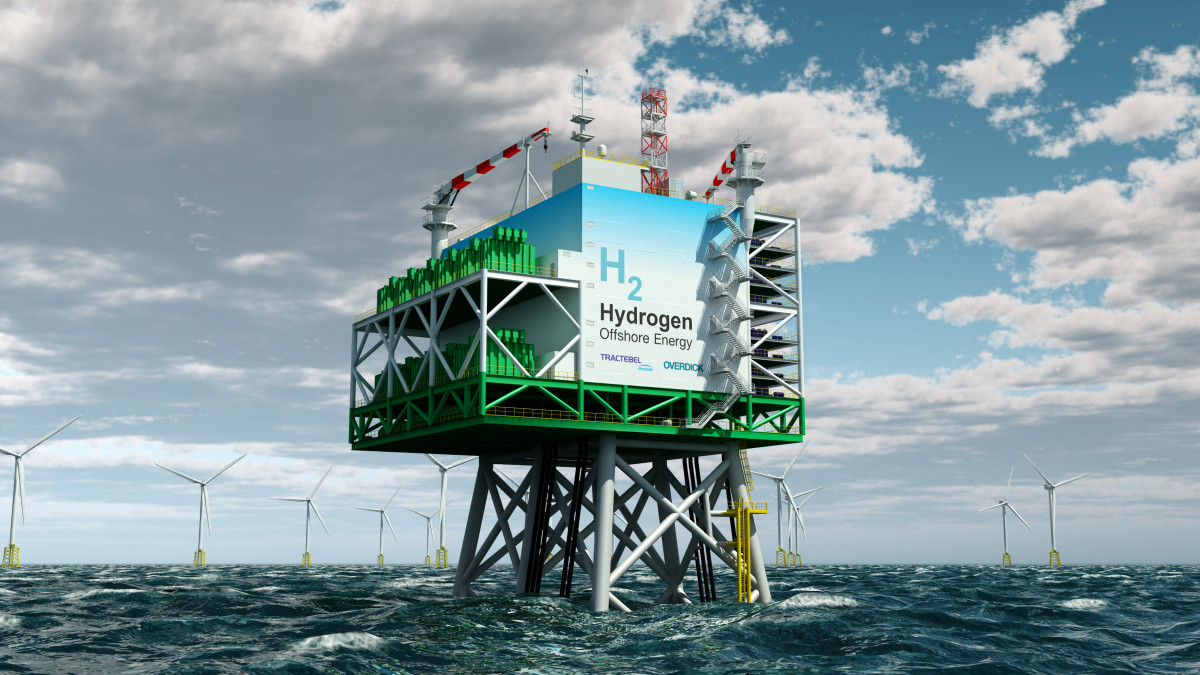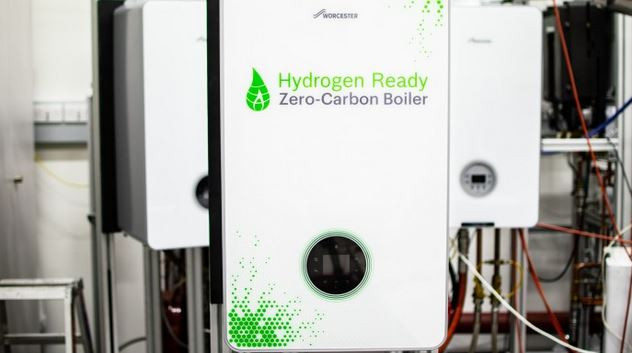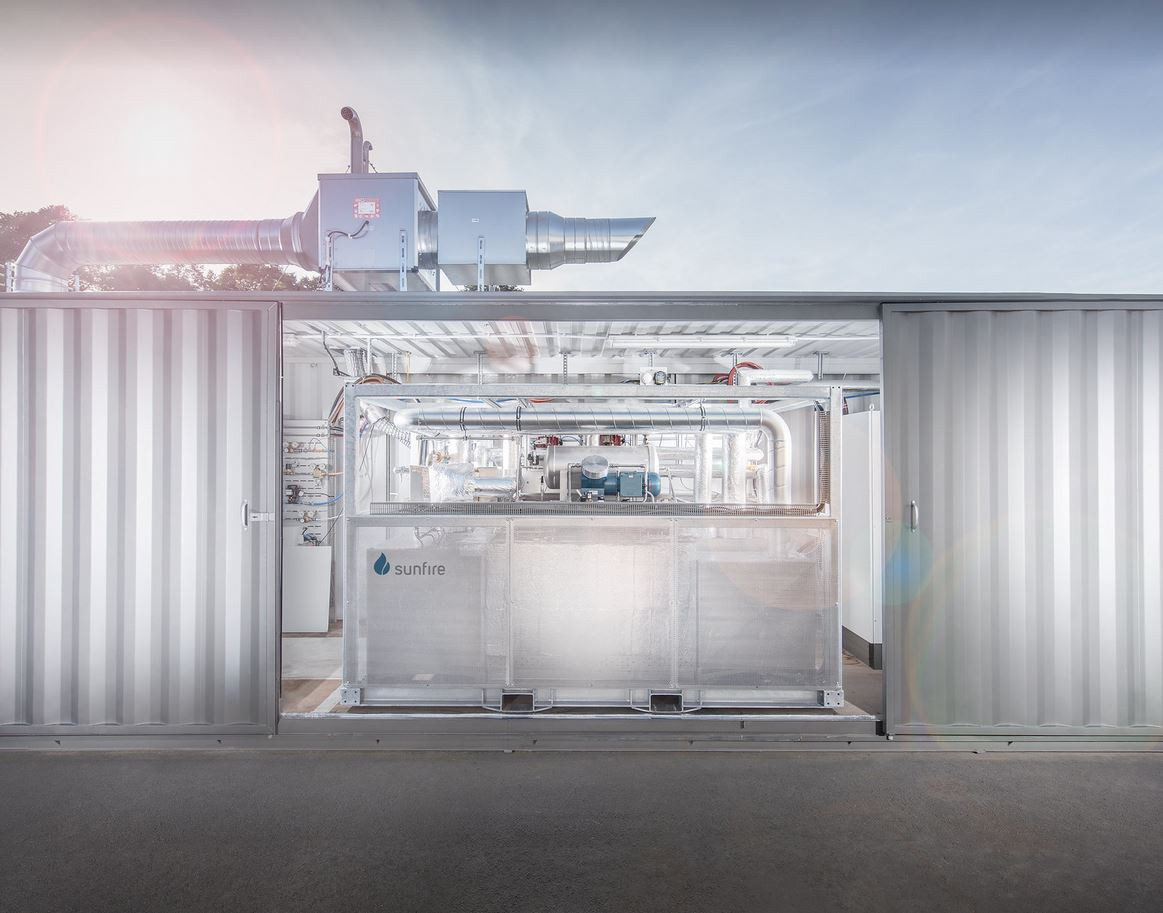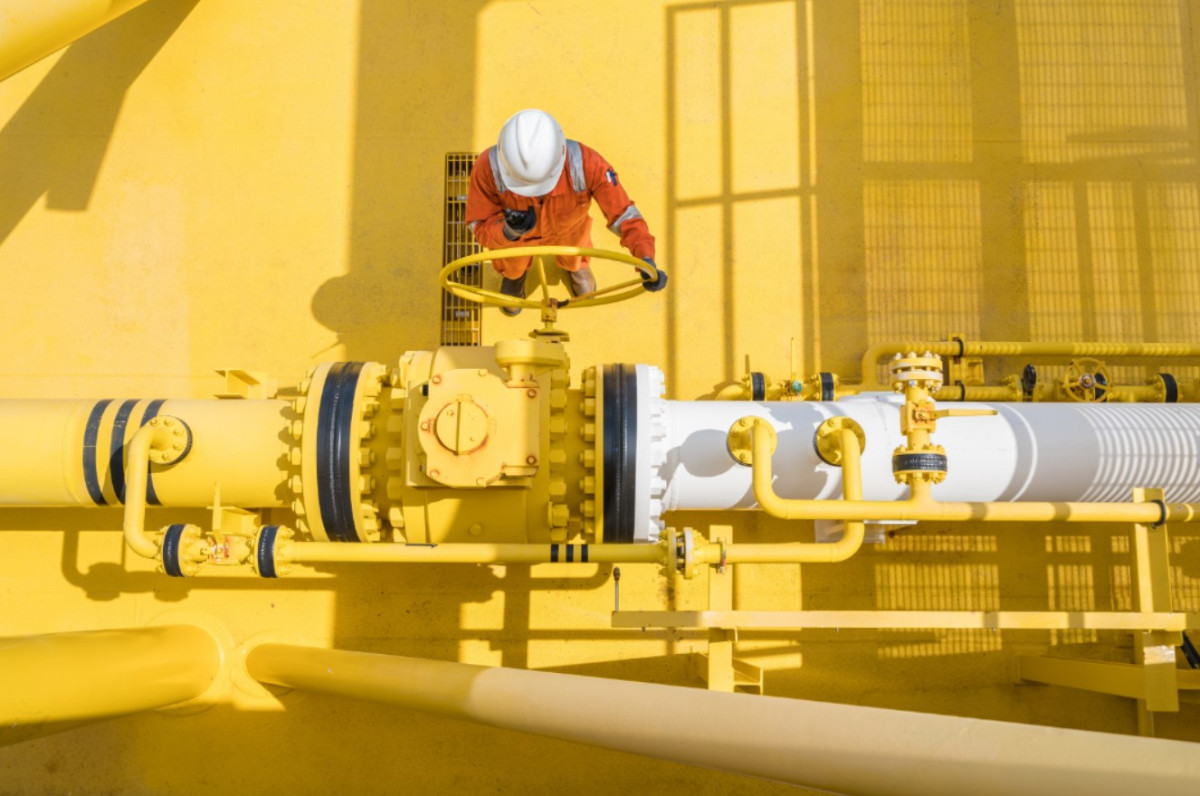Q&A - Heating with hydrogen: Clean alternative or pipe dream?
***Please note: This factsheet is part of a dossier on heating decarbonisation, which also includes the analysis Europe struggles to heat homes without cooking the planet, as well as the factsheets What are the best technologies to heat homes cleanly? and the Q&A – Germany debates phaseout of fossil fuel heating systems***
Hydrogen has been sold by parts of industry and some policymakers as a solution to keep homes warm in winter without needing to rip out gas pipes or buy expensive heat pumps. In countries like Germany and the UK, campaigns to push hydrogen as a fuel in homes have been criticised by scientists and even some supporters of the fuel as wasteful and inefficient. Beneath the hype, does hydrogen have a useful role to play in cleaning up buildings?
Hydrogen is a gas that burns cleanly by reacting with oxygen in the air to become water. Fossil fuels, on the other hand, contain carbon that reacts with oxygen to form carbon dioxide — a planet-heating gas.
But the true carbon footprint of hydrogen depends on how it is made. Because the molecule is highly reactive, it is rarely ever found in its pure form. Some processes produce emission-free hydrogen, while others release vast amounts of pollutants into the atmosphere.
The cleanest way to make hydrogen is to split water molecules into hydrogen and oxygen in a process called electrolysis. If powered by electricity from renewable energy sources, the hydrogen produced does not result in any emissions - which is why experts refer to it as “green” hydrogen. Even though plans abound across the globe to produce green hydrogen in large quantities, it currently remains a very scarce resource.
Almost all the hydrogen used today is “grey” — made by a far dirtier process. Natural gas, also known as methane gas, is combined with super-hot steam in a process that spews carbon monoxide and carbon dioxide into the atmosphere to make hydrogen. What's more, the full supply chain leaks methane, a gas that doesn't last as long in the atmosphere as CO2 but heats the planet 82 times more over a 20-year-period.
“Blue” hydrogen is made the same way, but by also capturing and storing the carbon released in the process. So far, average capture rates are too low to make the gas clean — but rates of 90% have been demonstrated, and experts say higher rates are possible, though costly. If methane leaks were rigorously plugged and capture rates increased above 95%, blue hydrogen could become a low-carbon fuel, albeit an expensive one.
Lastly, there is "pink" hydrogen, which is generated through electrolysis powered by nuclear energy. Following pressure from France and other nuclear energy advocates, the EU allowed member states to use pink hydrogen in their decarbonisation plans.

Critics say heating homes with green hydrogen, the cleanest type, is inefficient because a lot of energy is lost at each stage of the process. Electrolysis has an efficiency of about 80 percent and an average boiler about 85 percent, resulting in an overall efficiency of around 70 percent - meaning 30 percent of the energy is lost. In comparison, a heat pump, which uses electricity to move heat energy around rather than to generate it, provides 3-4 units of heat energy for every unit of electric energy used – therefore, heat pump efficiency is 300 to 400 percent. "It takes about five times more electricity to heat a home with hydrogen than it takes to heat the same home with an efficient heat pump," according to a review of research that excludes studies funded by industry.
"That means significantly more generation, and that means you need to build more renewables, and that means you have to pay a lot more for it," said Jan Rosenow, director of the clean energy think tank Regulatory Assistance Project and author of the study. A study published in February found heating homes with blue hydrogen was environmentally damaging, while heating with green hydrogen was about 2 to 3 times more expensive for society than using heat pumps. The estimate includes the upfront cost of building infrastructure like pipes and turbines, as well as the money needed to run them. It's "not just the cost of the fuel, but the system costs that would be then passed on to consumers in the end," said Rosenow.
The second problem is the availability of green hydrogen. The gas and its derivatives, such as green ammonia and synthetic kerosene, are the most promising solution to clean up industries like steel and aviation, which can not be electrified directly. But many experts are sceptical that enough will be made even for use cases like these, without an alternative route to decarbonisation. A study published in Nature in 2022 found the EU is likely to miss a target to make 10 million tons of green hydrogen by 2030, unless policymakers were to grow its capacity faster than has ever been done for an energy technology.
Even if electrolysis capacity were to grow as fast as wind and solar power have done, said Falko Ueckerdt, an energy researcher at the Potsdam Institute for Climate Impact Research (PIK) and co-author of the study, "there is strong evidence of short-term scarcity and long-term uncertainty in terms of green hydrogen availability.”

Hydrogen can be burned to heat a home in a boiler similar to those that burn natural gas, though there are no 100 percent hydrogen boilers on the market today. Because the boiler would be similar in size to a conventional one, it could fit into the same space with little need for adjustments in the home. That would make it more convenient and familiar for homeowners than other heating devices.
A “hydrogen-ready” boiler, meanwhile, is meant to burn both natural gas and hydrogen. This reflects the fact that the gas grid is currently supplying households with natural gas. In theory, hydrogen-ready boilers could be adapted with a small device so they only burn hydrogen once — or if — gas networks ditch fossil fuels.
Some companies have also described boilers as "hydrogen blend-ready", able to handle a blend of 80 percent natural gas and 20 percent hydrogen if grid operators mix the two gases. But because hydrogen holds much less energy than natural gas per unit of volume, the emissions savings are small (Hydrogen is used as a rocket fuel because it is extremely light - it carries more energy per unit of weight). A study by the Fraunhofer Institute for Energy Economics and Energy System Technology (Fraunhofer IEE) found "the technical effort for blending that substitutes 20 percent [by volume] of natural gas by green hydrogen is high, and corresponds to only about 6 to 7 percent greenhouse gas savings."
The first trials to heat real homes with hydrogen are only just getting started. In the UK, plans for a village near Liverpool to become the country's first hydrogen-powered community were scrapped in July after pushback from residents who were concerned over costs and safety. In the Netherlands, a trial started in December to heat a dozen homes with grey hydrogen. In Germany, a trial on 30 homes in June managed to reach a blend of up to 30 percent hydrogen.

One benefit of heating homes with hydrogen is that it reduces the need to dismantle Europe's expensive gas distribution infrastructure, which explains why natural gas network owners are among the fiercest supporters of heating homes with hydrogen.
"The grid owners don't want it to be dismantled without compensation, which will be expensive as well," said Adeline Rochet, an expert in decarbonising buildings at the climate think tank E3G. "So at the moment, we're also facing those interests that are trying to expand the lifetime of their infrastructure at all costs."
An analysis by think tank Agora Energiewende found Germany's climate goals will render 90 percent of its gas grid obsolete — with the rest mainly used for power plants and industry rather than households. As more and more consumers switch to cleaner heating options and are disconnected from the natural gas network, grid fees for those still on gas would increase more than ten-fold by 2044 under existing plans, according to Agora.
Environmental groups fear that maintaining infrastructure and devices that move and burn natural gas will automatically lead to more fossil fuel use. "As long as you have those pipes, the distributors will want to use the pipes," said Rochet. If there isn't enough hydrogen to burn, she added, they will turn to biomethane, and if there isn't enough biomethane, they will turn to natural gas.
The gas industry, meanwhile, has pointed to the stress that a sudden heat pump boom will place on ageing electricity grids.
"Today's electricity infrastructure isn't designed to cope with a very significant amount of highly variable and high peak electricity demand that you would typically see if you have a high penetration of heat pumps in a city," said Andreas Guth, a policy director at industry lobby group Eurogas. "You would need to look at how fast we could renovate or upgrade the electricity infrastructure."
There's some potential to use hydrogen as a back-up "when it's really, really cold outside and electricity demand goes through the roof," said Kevin Kircher, a mechanical engineer at Purdue University in the US who specialises in buildings, but it may be less than 5 percent of the total energy used for heating. "It would be expensive from the consumer perspective. Having two machines in your home to do heating rather than one is going to cost significantly more."

A report from the International Energy Agency found hydrogen is set to play a "negligible" role in heating buildings in a scenario where governments meet their announced climate pledges.
"While the greatest potential for hydrogen is in high‐temperature applications where heat pumps cannot operate and direct electrification is difficult, hydrogen could technically also replace natural gas in boilers for lower‐temperature heat and steam," the authors wrote. "However, compared with heat pumps or direct electrification [through resistance heaters generating heat in hot wires], hydrogen‐based heat suffers from low overall efficiency"
Consumer groups are also skeptical. The German umbrella group of consumer organizations vzbv has warned people against buying hydrogen-ready boilers, arguing they are unlikely to be run on hydrogen and will be more expensive than other options. A report from the UK Competition and Markets Authority in May slammed "greenwashing" messages from several companies who were marketing gas boilers as hydrogen-ready.
At most, experts say, hydrogen could play a small but useful role in heating some buildings on the coldest days of the year to avoid straining the grid in a system dominated by heat pumps. It could also be used in some power plants that provide electricity and district heating. But in homes, they see no major role for it.
Hydrogen could play a "niche" role in heating buildings but its promise is being used to delay real change, said Rosenow. "Inefficiency, cost and the unavailability of hydrogen make it a pretty unrealistic proposition."
